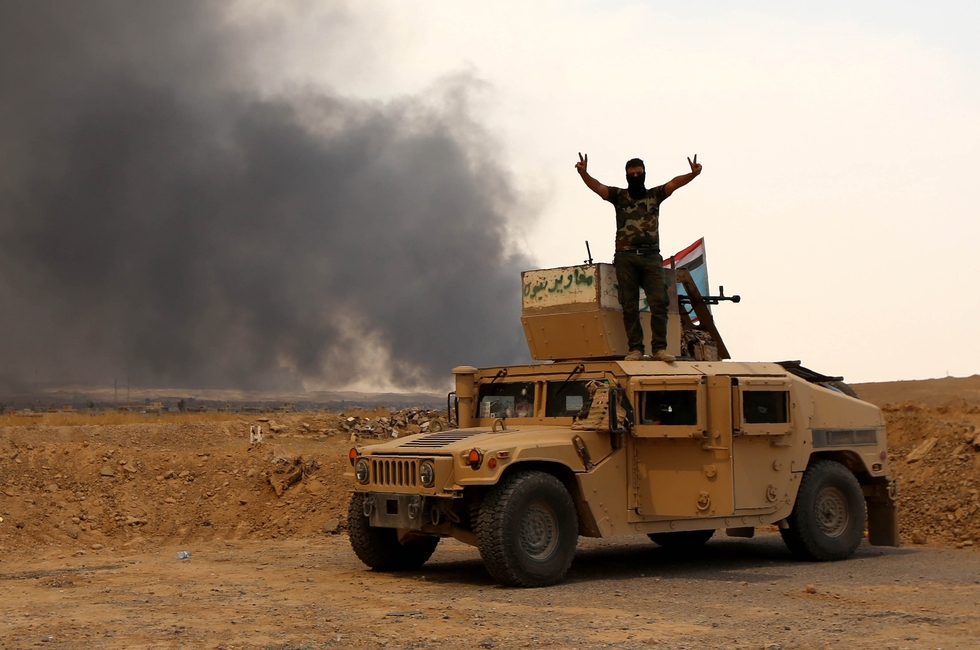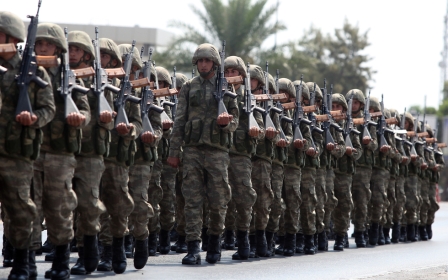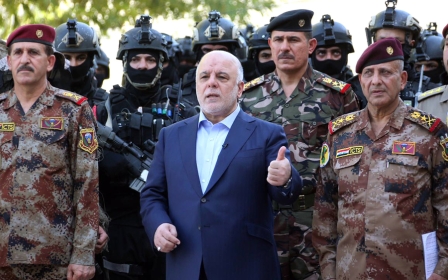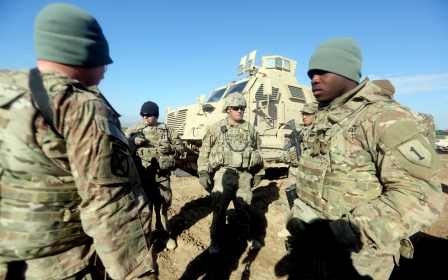US 'most likely' killed pro-government militia in Iraq bombing

An air strike conducted by the US-led coalition in Iraq "most likely" killed around 20 pro-government Sunni tribal fighters south of Mosul on Wednesday, a senior defence official told the AFP news agency.
"This most likely was from a coalition air strike. We are looking into it aggressively," the official said.
The official said there were apparently no civilian casualties in the Wednesday strike east of the town of Qayyarah, which was recaptured from IS in August.
The US military said it was conducting an investigation into the incident.
Operation Inherent Resolve, the coalition fighting the IS in Iraq and Syria, said it had conducted an air strike on a building near Khara’ib Jabr, a village south of Mosul, that was being used by IS.
"We are aware of the reports that Sunni tribal fighters were in the building that was struck, and we are taking those reports seriously," the coalition said in a statement announcing a joint investigation with Iraqi security forces.
"The coalition takes extraordinary precautions to avoid friendly or civilian casualties, applying rigorous standards in its targeting processes," the statement added.
Sheikh Nazhan Sakhr al-Lihaybi, the commander of the fighters who were killed, said they had succeeded in repelling an attack by IS militants in the area, and were bombed when they gathered after the end of the fighting.
Agriculture Minister Falah Hassan Zaidan, whose tribe resides in the Qayyarah area, also said that 21 tribal fighters were killed and confirmed the timing of the strike.
Lihaybi said that the air raid also wounded five fighters, while Zaidan put the number at four.
The deadly strike comes as Iraqi forces prepare for a final push to retake Mosul, the last IS-held city in the country.
The Mosul operation - which Western officials have indicated could start this month - will involve a heterogenous coalition of sometimes rival Iraqi forces including soldiers, police, Kurdish peshmerga fighters, and both Sunni and Shiite militiamen.
After it is launched, these forces will have to fight their way through IS-held territory - sometimes over distances of dozens of kilometres - before surrounding the city and then launching an assault to retake it.
The issue of which forces will actually enter the city is a contentious one, and there has been no public announcement of the roles the various forces will play.
New MEE newsletter: Jerusalem Dispatch
Sign up to get the latest insights and analysis on Israel-Palestine, alongside Turkey Unpacked and other MEE newsletters
Middle East Eye delivers independent and unrivalled coverage and analysis of the Middle East, North Africa and beyond. To learn more about republishing this content and the associated fees, please fill out this form. More about MEE can be found here.




